第23章 VII. ETHICS AND RELIGION.(2)
The mother instinct, throughout nature, is one of unmixed devotion, of love and service, care and defence, with no self-interest. The animal father, in such cases as he is of service to the young, assists the mother in her work in similar fashion. But the human father in the family with the male head soon made that family an instrument of desire, and combat, and self-expression, following the essentially masculine impulses. The children were his, and if males, valuable to serve and glorify him. In his dominance over servile women and helpless children, free rein was given to the growth of pride and the exercise of irresponsible tyranny. To these feelings, developed without check for thousands of years, and to the mental habits resultant, it is easy to trace much of the bias of our early ethical concepts.
Perhaps it is worth while to repeat here that the effort of this book is by no means to attribute a wholly evil influence to men, and a wholly good one to women; it is not even claimed that a purely feminine culture would have advanced the world more successfully. It does claim that the influence of the two together is better than that of either one alone; and in especial to point out what special kind of injury is due to the exclusive influence of one sex heretofore.
We have to-day reached a degree of human development where both men and women are capable of seeing over and across the distinctions of sex, and mutually working for the advancement of the world. Our progress is, however, seriously impeded by what we may call the masculine tradition, the unconscious dominance of a race habit based on this long androcentric period; and it is well worth while, in the interests of both sexes, to show the mischievous effects of the predominance of one.
We have in our ethics not only a "double standard" in one special line, but in nearly all. Man, as a sex, has quite naturally deified his own qualities rather than those of his opposite. In his codes of manners, of morals, of laws, in his early concepts of God, his ancient religions, we see masculinity written large on every side. Confining women wholly to their feminine functions, he has required of them only what he called feminine virtues, and the one virtue he has demanded, to the complete overshadowing of all others, is measured by wholly masculine requirements. ln the interests of health and happiness, monogamous marriage proves its superiority in our race as it has in others. It is essential to the best growth of humanity that we practice the virtue of chastity; it is a human virtue, not a feminine one. But in masculine hands this virtue was enforced upon women under penalties of hideous cruelty, and quite ignored by men. Masculine ethics, colored by masculine instincts, always dominated by sex, has at once recognized the value of chastity in the woman, which is right; punished its absence unfairly, which is wrong; and then reversed the whole matter when applied to men, which is ridiculous.
Ethical laws are laws--not idle notions. Chastity is a virtue because it promotes human welfare--not because men happen to prize it in women and ignore it themselves. The underlying reason for the whole thing is the benefit of the child; and to that end a pure and noble fatherhood is requisite, as well as such a motherhood. Under the limitations of a too masculine ethics, we have developed on this one line social conditions which would be absurdly funny if they were not so horrible.
Religion, be it noticed, does not bear out this attitude. The immense human need of religion, the noble human character of the great religious teachers, has always set its standards, when first established, ahead of human conduct.
Some there are, men of learning and authority, who hold that the deadening immobility of our religions, their resistance to progress and relentless preservation of primitive ideals, is due to the conservatism of women. Men, they say, are progressive by nature; women are conservative. Women are more religious than men, and so preserve old religious forms unchanged after men have outgrown them.
If we saw women in absolute freedom, with a separate religion devised by women, practiced by women, and remaining unchanged through the centuries; while men, on the other hand, bounded bravely forward, making new ones as fast as they were needed, this belief might be maintained.
But what do we see? All the old religions made by men, and forced on the women whether they liked it or not. Often women not even considered as part of the scheme--denied souls--given a much lower place in the system--going from the service of their father's gods to the service of their husbands--having none of their own. We see religions which make practically no place for women, as with the Moslem, as rigidly bigoted and unchanging as any other.
We see also this: that the wider and deeper the religion, the more human, the more it calls for practical applications in Christianity--the more it appeals to women. Further, in the diverging sects of the Christian religion, we find that its progressiveness is to be measured, not by the numbers of its women adherents, but by their relative freedom. The women of America, who belong to a thousand sects, who follow new ones with avidity, who even make them, and who also leave them all as men do, are women, as well as those of Spain, who remain contented Romanists, but in America the status of women is higher.
The fact is this: a servile womanhood is in a state of arrested development, and as such does form a ground for the retention of ancient ideas. But this is due to the condition of servility, not to womanhood.